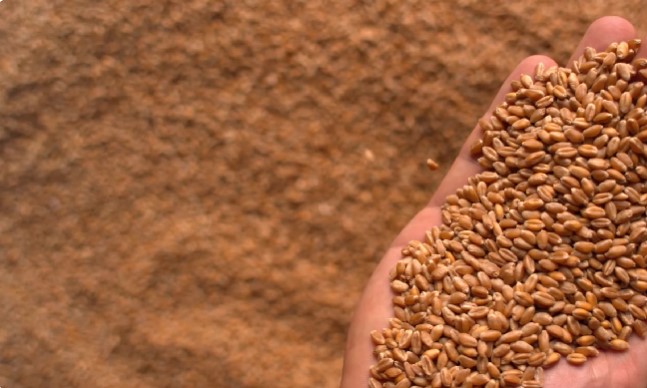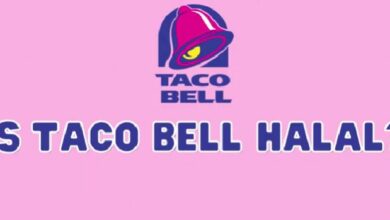Is Gluten Halal
In recent years, the topic of gluten has gained significant attention due to the rise in gluten-free diets and the prevalence of celiac disease. However, for the Muslim community, another important question arises: Is gluten halal? Understanding whether gluten is permissible under Islamic dietary laws requires a deep dive into both the nature of gluten itself and the principles of halal certification. This article aims to provide a comprehensive answer to the question, addressing common concerns and providing practical advice for those who wish to ensure their diet adheres to halal standards.
Understanding Gluten
What is Gluten?
Gluten is a group of proteins found in wheat and other grains such as barley and rye. It gives dough its elasticity, helping it rise and maintain its shape, and giving baked goods a chewy texture. The two main proteins in gluten are gliadin and glutenin.
Sources of Gluten
Gluten is present in a wide variety of foods beyond just bread and pastries. It can be found in:
- Pasta
- Cereals
- Sauces and dressings
- Processed meats
- Beverages like beer

The Role of Gluten in Food
Gluten plays a crucial role in food production. It not only affects the texture and elasticity but also influences the taste different aspects of many foods. Its unique properties are difficult to replicate, which is why gluten-free products often have a different taste and texture.
Is Gluten Halal?
Halal and Haram: Basic Principles
In Islam, foods and drinks are classified as halal (permissible) or haram (forbidden) based on their ingredients and the way they are processed. Key principles include:
- The source of the ingredients
- The methods of preparation
- Cross-contamination with haram substances
Gluten’s Halal Status
Is gluten halal? The short answer is yes, gluten itself is inherently halal. Since gluten is a protein derived from wheat, it does not contain any components that are forbidden in Islam. Wheat and grains are staples in many Muslim-majority countries, and their consumption is generally permissible.
Potential Halal Concerns with Gluten-Containing Products
While gluten itself is halal, the concern for Muslims often lies in the other ingredients or additives that may be present in gluten-containing products. Issues to watch for include:
- Cross-contamination: During processing, gluten products might come into contact with haram substances.
- Additives and preservatives: Some additives might not be halal. For example, certain emulsifiers or flavorings could be derived from animal sources that are not halal.
- Processing aids: The equipment and facilities used to process gluten products might also be used for haram products.
Ensuring Gluten Products are Halal
Reading Labels and Certification
One of the most effective ways to ensure that gluten-containing products are halal is to read food labels carefully. Look for halal certification symbols on the packaging. These certifications indicate that the product has been reviewed and approved by a reputable Islamic authority.
Trusted Brands and Retailers
Buying from brands and retailers known for their commitment to halal standards can provide additional assurance. Many companies now offer dedicated halal product lines or clearly mark their products as halal.
Where to Buy Halal Gluten Products
For those wondering where to buy halal gluten products, options include:
- Specialty Halal Stores: These stores often carry a wide range of halal-certified products, including those containing gluten.
- Online Retailers: Many online platforms specialize in halal foods, providing a convenient way to access a variety of products.
- Mainstream Supermarkets: Increasingly, large supermarket chains have sections or products that are halal-certified.
Frequently Asked Questions
What is gluten?
Gluten is a group of proteins found in wheat and related grains, including barley and rye. It gives dough its elasticity, helps it rise, and keeps its shape, often contributing to a chewy texture in baked products.
Is gluten harmful to everyone?
No, gluten is not harmful to everyone. However, it can cause serious health issues for individuals with celiac disease or gluten sensitivity. For most people, gluten can be consumed without any adverse effects.
Is gluten halal?
Yes, gluten itself is halal as it is a protein derived from wheat, which is a permissible food in Islam. However, the halal status of gluten-containing products depends on other ingredients and the processing methods used.
Can Muslims eat gluten-free products?
Yes, Muslims can eat gluten-free products. These products are especially suitable for those with gluten intolerance or celiac disease and can be a part of a halal diet as long as other ingredients and processing methods comply with halal guidelines.
What foods typically contain gluten?
Gluten is commonly found in foods such as bread, pasta, cereals, cookies, cakes, pastries, sauces, and processed meats. It can also be present in some beverages like beer.
How can I tell if a product is halal?
To determine if a product is halal, look for halal certification symbols on the packaging. Additionally, check the ingredient list for any haram (forbidden) substances and consider the possibility of cross-contamination during processing.
Are gluten-free products always halal?
Not necessarily. While gluten-free products do not contain gluten, they may still contain other ingredients that are not halal or could be processed in facilities that handle haram substances. Always check for halal certification.
Can gluten be found in non-food products?
Yes, gluten can be found in non-food products such as medications, supplements, cosmetics, and skincare items. It’s important to check labels and consult with manufacturers if you have gluten intolerance or celiac disease.
What is celiac disease?
Celiac disease is an autoimmune disorder where the ingestion of gluten leads to damage in the small intestine. It can cause symptoms such as bloating, diarrhea, and malnutrition. A strict gluten-free diet is required to manage the condition.
How is gluten sensitivity different from celiac disease?
Gluten sensitivity, also known as non-celiac gluten sensitivity, causes symptoms similar to celiac disease, such as bloating and abdominal pain, but without the autoimmune response and intestinal damage seen in celiac disease. Diagnosis and treatment usually involve dietary modifications.
Can gluten intolerance develop later in life?
Yes, gluten intolerance or celiac disease can develop at any age, even if you previously had no issues with gluten. Symptoms can appear after a period of stress, illness, surgery, or other environmental triggers.
What are some common symptoms of gluten intolerance?
Common symptoms of gluten intolerance include bloating, gas, diarrhea, constipation, abdominal pain, headaches, fatigue, and joint pain. These symptoms can vary widely among individuals.
Where can I buy halal gluten-free products?
Halal gluten-free products can be found at specialty halal stores, online retailers specializing in halal foods, and increasingly at mainstream supermarkets with dedicated halal sections or gluten-free aisles.
Why do some gluten-free products taste different?
Gluten-free products often taste different because they use alternative flours and ingredients to replace gluten. These substitutes can affect the texture, flavor, and overall eating experience compared to traditional gluten-containing products.
Can I make my own halal gluten-free meals at home?
Yes, you can make your own halal gluten-free meals at home by using halal-certified ingredients and gluten-free flours such as rice flour, almond flour, and chickpea flour. This allows you to control both the halal status and the gluten content of your meals.
Conclusion
For Muslims who adhere to halal dietary guidelines, understanding whether is gluten halal is essential. While gluten itself is inherently halal, it’s important to be vigilant about the other ingredients and potential cross-contamination in gluten-containing products. By reading labels, seeking halal certifications, and purchasing from trusted sources, one can ensure that their diet remains both delicious and in accordance with their faith.
Read also:





